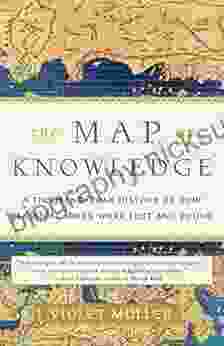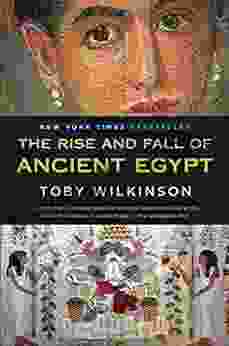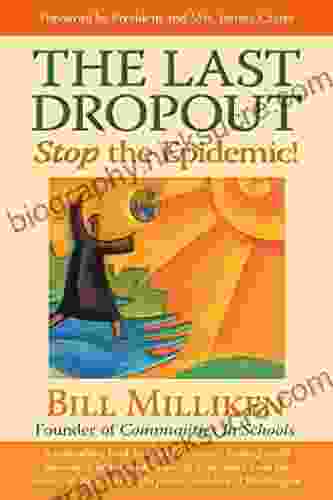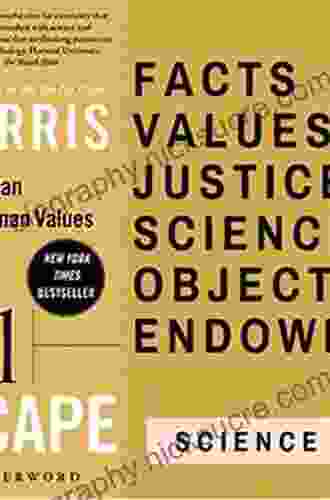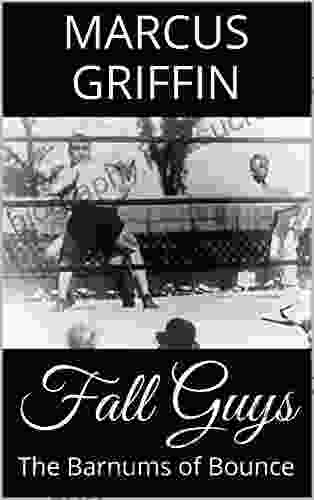A Millennial Odyssey: The Lost and Found Legacy of Classical Ideas

The history of classical ideas is a tale of rise, fall, and rebirth. These ideas, born in the ancient civilizations of Greece and Rome, have shaped Western civilization for over two millennia. But they have not always been in vogue. There have been times when they were lost or forgotten, only to be rediscovered later by generations eager to embrace their wisdom.
4.6 out of 5
| Language | : | English |
| File size | : | 118394 KB |
| Text-to-Speech | : | Enabled |
| Screen Reader | : | Supported |
| Enhanced typesetting | : | Enabled |
| X-Ray | : | Enabled |
| Word Wise | : | Enabled |
| Print length | : | 297 pages |
The Birth of Classical Ideas
The classical era, which lasted from the 8th to the 4th centuries BC, saw the birth of some of the most influential ideas in the history of Western thought. These ideas were developed by philosophers, scientists, artists, and writers in the ancient cities of Athens and Rome.
The philosophers of classical Greece developed a number of important ideas about the nature of reality, the meaning of life, and the role of government. They argued that the universe was governed by natural laws, that human beings were rational creatures capable of free will, and that the best form of government was a democracy.
The scientists of classical Greece made significant advances in astronomy, mathematics, and medicine. They developed the heliocentric model of the solar system, invented the astrolabe, and discovered the principles of leverage and gravity.
The artists and writers of classical Greece produced some of the most beautiful and enduring works of art and literature in history. Their sculptures, paintings, and buildings are still admired today for their beauty and harmony. Their plays and poems have been translated into dozens of languages and continue to be performed and read around the world.
The Rise and Fall of Classical Ideas
The classical ideas that were developed in ancient Greece and Rome spread throughout the Western world over the centuries. They were adopted by the Romans, who used them to build their empire. They were preserved by Christian scholars during the Middle Ages. And they were revived by the humanists of the Renaissance.
However, the classical ideas did not always flourish. There were times when they were suppressed or forgotten. During the Middle Ages, for example, the emphasis on classical learning was replaced by a focus on Christian doctrine. And during the Enlightenment, the rationalism of the classical philosophers was challenged by the skepticism of the empiricists.
The Rebirth of Classical Ideas
In the late 18th century, there was a renewed interest in classical ideas. This interest was sparked by the Enlightenment, which emphasized the importance of reason and individual liberty. The humanists of the Renaissance had already revived many of the classical texts, and the scholars of the Enlightenment now began to apply the ideas contained in these texts to the problems of their own time.
The classical ideas had a profound impact on the development of modern Western civilization. They inspired the American Revolution, the French Revolution, and the Industrial Revolution. They shaped the way we think about government, science, art, and literature. And they continue to influence our world today.
The Legacy of Classical Ideas
The classical ideas that were developed in ancient Greece and Rome have had a profound impact on Western civilization. They have shaped the way we think about the universe, the meaning of life, and the role of government. They have inspired some of the most beautiful and enduring works of art and literature. And they continue to influence our world today.
The legacy of classical ideas is a testament to the power of human reason and creativity. These ideas have stood the test of time and continue to inspire us today.
Further Reading
- Classical World by Britannica
- Classical Greece by History.com
- The Great Ideas of Classical Philosophy by The Great Courses
4.6 out of 5
| Language | : | English |
| File size | : | 118394 KB |
| Text-to-Speech | : | Enabled |
| Screen Reader | : | Supported |
| Enhanced typesetting | : | Enabled |
| X-Ray | : | Enabled |
| Word Wise | : | Enabled |
| Print length | : | 297 pages |
Do you want to contribute by writing guest posts on this blog?
Please contact us and send us a resume of previous articles that you have written.
 Fiction
Fiction Non Fiction
Non Fiction Romance
Romance Mystery
Mystery Thriller
Thriller SciFi
SciFi Fantasy
Fantasy Horror
Horror Biography
Biography Selfhelp
Selfhelp Business
Business History
History Classics
Classics Poetry
Poetry Childrens
Childrens Young Adult
Young Adult Educational
Educational Cooking
Cooking Travel
Travel Lifestyle
Lifestyle Spirituality
Spirituality Health
Health Fitness
Fitness Technology
Technology Science
Science Arts
Arts Crafts
Crafts DIY
DIY Gardening
Gardening Petcare
Petcare William H Frey
William H Frey James Syhabout
James Syhabout Brad Burns
Brad Burns Denton Salle
Denton Salle Ryan T White
Ryan T White Stephanie Fritz
Stephanie Fritz Barry J Kemp
Barry J Kemp Chris Cage
Chris Cage Lew Freedman
Lew Freedman Elizabeth Lockwood
Elizabeth Lockwood Jen Houcek
Jen Houcek Tim Ingold
Tim Ingold Bashir Hosseini Jafari
Bashir Hosseini Jafari Daniel M Koretz
Daniel M Koretz Roy Porter
Roy Porter Tom Miller
Tom Miller Jim Fay
Jim Fay Oliver T Spedding
Oliver T Spedding Basudeb Bhatta
Basudeb Bhatta Babu The Panda
Babu The Panda Jude Currivan
Jude Currivan Lynn Mann
Lynn Mann Print Replica Kindle Edition
Print Replica Kindle Edition Dave Karczynski
Dave Karczynski Mitch Prinstein
Mitch Prinstein Bob Holtzman
Bob Holtzman Farzana Nayani
Farzana Nayani Vincent Bossley
Vincent Bossley Craig Lambert
Craig Lambert Susan Nance
Susan Nance Dr Faith G Harper
Dr Faith G Harper Jessica F Shumway
Jessica F Shumway Kindle Edition
Kindle Edition John Sandford
John Sandford Ellen Lewin
Ellen Lewin Barry Rabkin
Barry Rabkin David Abram
David Abram Dustin Hansen
Dustin Hansen Joseph Epes Brown
Joseph Epes Brown Barbara Kennard
Barbara Kennard Helen Fisher
Helen Fisher Emily Chappell
Emily Chappell Titus M Kennedy
Titus M Kennedy Jennifer Traig
Jennifer Traig Chris Bennett
Chris Bennett Nicholas Sparks
Nicholas Sparks T C Edge
T C Edge Rachel Dash
Rachel Dash Prince Asare
Prince Asare Sam Cowen
Sam Cowen Maha Alkurdi
Maha Alkurdi Scarlett Thomas
Scarlett Thomas Melissa Gomes
Melissa Gomes Robin Nixon
Robin Nixon James Duggan
James Duggan Kate Williams
Kate Williams S E Hinton
S E Hinton Jamie Margolin
Jamie Margolin Brian Gilbert
Brian Gilbert Elizabeth George Speare
Elizabeth George Speare Emma Walker
Emma Walker Diane Cardwell
Diane Cardwell Casey Watson
Casey Watson Rebecca Rupp
Rebecca Rupp Mike Stanton
Mike Stanton Catherine M Cameron
Catherine M Cameron Joshua G Shifrin
Joshua G Shifrin Graham Farmelo
Graham Farmelo Janis Keyser
Janis Keyser Charles Soule
Charles Soule Mark Twain
Mark Twain John Henry Phillips
John Henry Phillips Betty Stone
Betty Stone Yang Kuang
Yang Kuang Robin Mcmillan
Robin Mcmillan Charlotte Browne
Charlotte Browne Thomas Bulfinch
Thomas Bulfinch St Louis Post Dispatch
St Louis Post Dispatch Harvey Wittenberg
Harvey Wittenberg Macauley Lord
Macauley Lord Thomas Lumley
Thomas Lumley Tori Day
Tori Day Cheryl Erwin
Cheryl Erwin Daniel S Lobel Phd
Daniel S Lobel Phd Max Marchi
Max Marchi Jean Illsley Clarke
Jean Illsley Clarke Cara Koscinski
Cara Koscinski Craig Romano
Craig Romano Edwin R Sherman
Edwin R Sherman Joanna Hunt
Joanna Hunt Trish Kuffner
Trish Kuffner J Michael Veron
J Michael Veron Rebecca Solnit
Rebecca Solnit Bill Mckibben
Bill Mckibben Chase Hill
Chase Hill Ron Lemaster
Ron Lemaster Jessica Smartt
Jessica Smartt Peter Martin
Peter Martin Linda Carroll
Linda Carroll Catherine Shainberg
Catherine Shainberg Sam Harris
Sam Harris C R Hallpike
C R Hallpike Emma Brockes
Emma Brockes Barry Johnston
Barry Johnston Julie Buxbaum
Julie Buxbaum Stan Tekiela
Stan Tekiela Anthony Edwards
Anthony Edwards Mike Massie
Mike Massie Boy Scouts Of America
Boy Scouts Of America Erica Schultz
Erica Schultz Sam Kean
Sam Kean Diane Yancey
Diane Yancey Jonathan Bergmann
Jonathan Bergmann Mark Rashid
Mark Rashid Stephen K Sanderson
Stephen K Sanderson Jack Newman
Jack Newman Scott Mactavish
Scott Mactavish Dan R Lynch
Dan R Lynch Daniel P Huerta
Daniel P Huerta Guy P Harrison
Guy P Harrison Mark Mayfield
Mark Mayfield Charles River Editors
Charles River Editors Mike Allison
Mike Allison Cary J Griffith
Cary J Griffith Barbara Bassot
Barbara Bassot Mackenzi Lee
Mackenzi Lee Graham R Gibbs
Graham R Gibbs P J Agness
P J Agness Michael Palin
Michael Palin Dan Golding
Dan Golding Visual Arts
Visual Arts Leia Stone
Leia Stone Joshua Hammer
Joshua Hammer Vanessa Garbin
Vanessa Garbin Robert A Baruch Bush
Robert A Baruch Bush Kit Yates
Kit Yates Ben Collins
Ben Collins Sergei Urban
Sergei Urban Michael Wood
Michael Wood Marshall Jon Fisher
Marshall Jon Fisher Vanessa Ogden Moss
Vanessa Ogden Moss Jill Brown
Jill Brown Eric Franklin
Eric Franklin Jane Butel
Jane Butel John Garrity
John Garrity Ben Sedley
Ben Sedley Leslie Stager
Leslie Stager Holger Schutkowski
Holger Schutkowski Julian I Graubart
Julian I Graubart Reelav Patel
Reelav Patel Nick Bollettieri
Nick Bollettieri Blair Braverman
Blair Braverman Chris Eberhart
Chris Eberhart Erik J Brown
Erik J Brown Jutta Schickore
Jutta Schickore Hunbatz Men
Hunbatz Men Malcolm Hebron
Malcolm Hebron Beth Miller
Beth Miller Barry Rhodes
Barry Rhodes Gordon Witteveen
Gordon Witteveen Melissa Haag
Melissa Haag Barbara Neiman
Barbara Neiman Monica Hesse
Monica Hesse Pearson Education
Pearson Education Bagele Chilisa
Bagele Chilisa Conor Nolan
Conor Nolan Spencer Wells
Spencer Wells Dr Michael P Masters
Dr Michael P Masters Charles Buist
Charles Buist John Whitman
John Whitman Shmuel Peerless
Shmuel Peerless David Starbuck Smith
David Starbuck Smith Violet Moller
Violet Moller Eugene V Resnick
Eugene V Resnick Charlie Shamp
Charlie Shamp Donald R Gallo
Donald R Gallo Ryan Higa
Ryan Higa S K Gupta
S K Gupta Noah Brown
Noah Brown David Taylor
David Taylor Christopher L Heuertz
Christopher L Heuertz Tami Anastasia
Tami Anastasia Roanne Van Voorst
Roanne Van Voorst V B Alekseev
V B Alekseev Glenna Mageau
Glenna Mageau Scott Reed
Scott Reed Shannon Reilly
Shannon Reilly Crystal Duffy
Crystal Duffy Brian Switek
Brian Switek Mark H Newman
Mark H Newman Pavla Kesslerova
Pavla Kesslerova Edward Lee
Edward Lee Bb
Bb Proper Education Group
Proper Education Group Molly E Lee
Molly E Lee Brandon Royal
Brandon Royal Leah Cullis
Leah Cullis John H Mcwhorter
John H Mcwhorter John Kimantas
John Kimantas Diane Musho Hamilton
Diane Musho Hamilton Rob Rains
Rob Rains Mykel Hawke
Mykel Hawke George Macdonald
George Macdonald Susan Dennard
Susan Dennard Ellen Notbohm
Ellen Notbohm John Aldridge
John Aldridge Grey Owl
Grey Owl Nick Neely
Nick Neely Jake Anderson
Jake Anderson Lily Collins
Lily Collins Scott Malthouse
Scott Malthouse Barbara Ann Kipfer
Barbara Ann Kipfer Benita Bensch
Benita Bensch R L Medina
R L Medina Stephen J Bavolek
Stephen J Bavolek Mary A Fristad
Mary A Fristad Ralph Galeano
Ralph Galeano Robin Knox Johnston
Robin Knox Johnston Danny Staple
Danny Staple Karen Bush
Karen Bush Nicole Martin
Nicole Martin Basu Shanker
Basu Shanker Rachelle Zukerman
Rachelle Zukerman Frederick Douglass Opie
Frederick Douglass Opie Linda Welters
Linda Welters Dustin Salomon
Dustin Salomon Sean Mcindoe
Sean Mcindoe Shayla Black
Shayla Black Bryan Peterson
Bryan Peterson Rob Pope
Rob Pope Linnea Dunne
Linnea Dunne Richard H Immerman
Richard H Immerman Becca Anderson
Becca Anderson Valerie Pollmann R
Valerie Pollmann R Howard Zinn
Howard Zinn Jenn Mcallister
Jenn Mcallister Eddie Merrins
Eddie Merrins John Quick
John Quick Paul Van Lierop
Paul Van Lierop Achille Rubini
Achille Rubini Martin Dugard
Martin Dugard Christine Kenneally
Christine Kenneally Jeffrey Jensen Arnett
Jeffrey Jensen Arnett Steven Rinella
Steven Rinella Rachel Morgan
Rachel Morgan Tara Brach
Tara Brach W Scott Elliot
W Scott Elliot Mia Scotland
Mia Scotland Bruce Pascoe
Bruce Pascoe Buddy Levy
Buddy Levy Barbara Gastel
Barbara Gastel Barry Glassner
Barry Glassner Fabien Clavel
Fabien Clavel Marco Grandis
Marco Grandis James C Radcliffe
James C Radcliffe Suzanne Wylde
Suzanne Wylde Paul Doiron
Paul Doiron Mark Ellyatt
Mark Ellyatt Cait Stevenson
Cait Stevenson Percy Boomer
Percy Boomer Jenna Helland
Jenna Helland Constanze Niedermaier
Constanze Niedermaier Wanda Priday
Wanda Priday Cindy Post Senning
Cindy Post Senning Barbara Rogoff
Barbara Rogoff Gary Soto
Gary Soto Mina Lebitz
Mina Lebitz J Bruce Brackenridge
J Bruce Brackenridge Sharon Dukett
Sharon Dukett Jaymin Eve
Jaymin Eve Carlo Collodi
Carlo Collodi W Hamilton Gibson
W Hamilton Gibson Editors Of Southern Living Magazine
Editors Of Southern Living Magazine Jeremy Sweet
Jeremy Sweet Dave Rearwin
Dave Rearwin Peter Wacht
Peter Wacht Deanna Roy
Deanna Roy Ping Li
Ping Li Mike Loades
Mike Loades Gary Lincoff
Gary Lincoff Meghan L Marsac
Meghan L Marsac Ray Comfort
Ray Comfort Rachel Smith
Rachel Smith Arnold G Nelson
Arnold G Nelson Siddhartha Rao
Siddhartha Rao Marie Rutkoski
Marie Rutkoski Eliza Reid
Eliza Reid Victor Seow
Victor Seow Dacher Keltner
Dacher Keltner Lawrence Baldassaro
Lawrence Baldassaro Massimo Cossu Nicola Pirina
Massimo Cossu Nicola Pirina David Jamieson Bolder
David Jamieson Bolder Beau Miles
Beau Miles William Byers
William Byers John J Robinson
John J Robinson Susan Scott
Susan Scott Ronald Wheeler
Ronald Wheeler Smart Reads
Smart Reads J C Cervantes
J C Cervantes Toby A H Wilkinson
Toby A H Wilkinson Daniel J Barrett
Daniel J Barrett Barbara Taylor
Barbara Taylor Yuki Mano
Yuki Mano Samantha Fitts
Samantha Fitts William Wasserman
William Wasserman Steven Bell
Steven Bell Bonnie Tsui
Bonnie Tsui Tim Marshall
Tim Marshall Barry Friedman
Barry Friedman Janna Levin
Janna Levin Geoffrey Finch
Geoffrey Finch Ernie Morton
Ernie Morton Sara Shepard
Sara Shepard David Aretha
David Aretha James Randi
James Randi Patrick Sweeney
Patrick Sweeney Kara Goucher
Kara Goucher Gay Robins
Gay Robins Barry Burd
Barry Burd Robert Hogan
Robert Hogan Mike Commito
Mike Commito Jeff Alt
Jeff Alt David Beaupre
David Beaupre Christopher Taylor Ma Lmft
Christopher Taylor Ma Lmft Elliott Vandruff
Elliott Vandruff T H White
T H White Beebe Bahrami
Beebe Bahrami Ron Avery
Ron Avery James Duthie
James Duthie Laura Ingalls Wilder
Laura Ingalls Wilder Leonard M Adkins
Leonard M Adkins Stanislas Dehaene
Stanislas Dehaene Catherine J Allen
Catherine J Allen Jennifer Estep
Jennifer Estep Sampson Davis
Sampson Davis Ben Povlow
Ben Povlow Craig Martin
Craig Martin Richard J Dewhurst
Richard J Dewhurst David Klausmeyer
David Klausmeyer Jay Abramson
Jay Abramson Richard Harris
Richard Harris Wayne B Chandler
Wayne B Chandler Geert Hofstede
Geert Hofstede Cynthia Levinson
Cynthia Levinson Mike High
Mike High Monta Z Briant
Monta Z Briant Steve Biddulph
Steve Biddulph Alastair Hannay
Alastair Hannay Hill Gates
Hill Gates Farley Mowat
Farley Mowat Suzanne Leonhard
Suzanne Leonhard Richard Weissbourd
Richard Weissbourd Michelle Rigler
Michelle Rigler Arny Alberts
Arny Alberts Debra Kilby
Debra Kilby Breanna Hayse
Breanna Hayse Mike Swedenberg
Mike Swedenberg Chuck Missler
Chuck Missler Richard Meadows
Richard Meadows Jenny Chandler
Jenny Chandler Jade Barrett
Jade Barrett David A Bogart
David A Bogart Nancy E Willard
Nancy E Willard David Burch
David Burch Nina Manning
Nina Manning Bernard Marr
Bernard Marr Ian Leslie
Ian Leslie Nick Townsend
Nick Townsend Stefan Ecks
Stefan Ecks Lock Gareth
Lock Gareth Timothy Pakron
Timothy Pakron Hongyu Guo
Hongyu Guo Rowan Jacobsen
Rowan Jacobsen Hollis Lance Liebman
Hollis Lance Liebman Gerald Beaudry
Gerald Beaudry Allan V Horwitz
Allan V Horwitz Kate Darling
Kate Darling Eric Engle
Eric Engle Baruch Englard
Baruch Englard Temple West
Temple West John C Norcross
John C Norcross Nicholas Wolterstorff
Nicholas Wolterstorff James M Collins
James M Collins Mark Young
Mark Young Ken Xiao
Ken Xiao Otto Scharmer
Otto Scharmer Joseph Schmuller
Joseph Schmuller Laura Pavlov
Laura Pavlov Jayanti Tambe
Jayanti Tambe Jennifer Pharr Davis
Jennifer Pharr Davis Richard Scott
Richard Scott Eric Leiser
Eric Leiser Margaret Owen
Margaret Owen Alexandra Andrews
Alexandra Andrews Mark Kurlansky
Mark Kurlansky Bridget Flynn Walker Phd
Bridget Flynn Walker Phd Barzin Pakandam
Barzin Pakandam Gordon H Chang
Gordon H Chang Julie L Spencer
Julie L Spencer F William Lawvere
F William Lawvere Gabriyell Sarom
Gabriyell Sarom Chris Mooney
Chris Mooney Ascencia
Ascencia Philip Maffetone
Philip Maffetone John G Robertson
John G Robertson Clifford Herriot
Clifford Herriot Ryan A Pedigo
Ryan A Pedigo Yuval Noah Harari
Yuval Noah Harari Jesse Liberty
Jesse Liberty Isabel Fonseca
Isabel Fonseca Peter K Tyson
Peter K Tyson Jonathan Kellerman
Jonathan Kellerman John D Barrow
John D Barrow Pat Shipman
Pat Shipman Rob Hutchings
Rob Hutchings Helen Kara
Helen Kara Marc Loy
Marc Loy Barbara Russell
Barbara Russell David Thomas
David Thomas Scott Westerfeld
Scott Westerfeld Burt L Standish
Burt L Standish Sport Hour
Sport Hour Jack Andraka
Jack Andraka Master Gamer
Master Gamer Fred Mitchell
Fred Mitchell Kyle Butler
Kyle Butler Lynn Rosen
Lynn Rosen Bill Milliken
Bill Milliken Jeff Belanger
Jeff Belanger Edith Grossman
Edith Grossman Joseph Alton M D
Joseph Alton M D Jane Hardwicke Collings
Jane Hardwicke Collings Luke Gilkerson
Luke Gilkerson Reprint Edition Kindle Edition
Reprint Edition Kindle Edition Candice Davie
Candice Davie Nichole Carpenter
Nichole Carpenter Muhammad Zulqarnain
Muhammad Zulqarnain Barbara Mertz
Barbara Mertz Khurshed Batliwala
Khurshed Batliwala Chadd Vanzanten
Chadd Vanzanten Thomas French
Thomas French Rick Joyner
Rick Joyner Donald Frias
Donald Frias Kam Knight
Kam Knight Steve Burrows
Steve Burrows James Kilgo
James Kilgo James Koeper
James Koeper Jim Wharton
Jim Wharton Richard Chun
Richard Chun Joanne Glenn
Joanne Glenn Dr Craig Malkin
Dr Craig Malkin Leon Mccarron
Leon Mccarron Mick Conefrey
Mick Conefrey Martin Sternstein
Martin Sternstein Robert Ardrey
Robert Ardrey Kenneth Wilgus Phd
Kenneth Wilgus Phd Larry Dane Brimner
Larry Dane Brimner Beau Bradbury
Beau Bradbury Barbara Illowsk
Barbara Illowsk Kenton Kroker
Kenton Kroker Ben Goldacre
Ben Goldacre Debbie M Schell
Debbie M Schell Clayton King
Clayton King Simon Spurrier
Simon Spurrier Justin Sirois
Justin Sirois Kathleen Masters
Kathleen Masters Chiara Sparks
Chiara Sparks Jean Smith
Jean Smith Rhonda Belle
Rhonda Belle David Cockburn
David Cockburn Lewis Thomas
Lewis Thomas Erica B Marcus
Erica B Marcus Randy Baker
Randy Baker Bobbie Faulkner
Bobbie Faulkner Daniel T Willingham
Daniel T Willingham Nadine Hays Pisani
Nadine Hays Pisani Steven Hawthorne
Steven Hawthorne Colleen Alexander Roberts
Colleen Alexander Roberts Matt Taddy
Matt Taddy Autumn Carpenter
Autumn Carpenter Charlotte Booth
Charlotte Booth John Lister Kaye
John Lister Kaye Sam Nadler
Sam Nadler Kara Tippetts
Kara Tippetts
Light bulbAdvertise smarter! Our strategic ad space ensures maximum exposure. Reserve your spot today!

 Elmer PowellArmy Survival Manual FM 21-76: A Comprehensive Guide to Surviving in Hostile...
Elmer PowellArmy Survival Manual FM 21-76: A Comprehensive Guide to Surviving in Hostile... Mason PowellFollow ·17.8k
Mason PowellFollow ·17.8k Adam HayesFollow ·13.6k
Adam HayesFollow ·13.6k Italo CalvinoFollow ·10.8k
Italo CalvinoFollow ·10.8k Floyd RichardsonFollow ·2.2k
Floyd RichardsonFollow ·2.2k Arthur C. ClarkeFollow ·7.8k
Arthur C. ClarkeFollow ·7.8k DeShawn PowellFollow ·15.7k
DeShawn PowellFollow ·15.7k Felix CarterFollow ·19.2k
Felix CarterFollow ·19.2k Ricky BellFollow ·16.6k
Ricky BellFollow ·16.6k
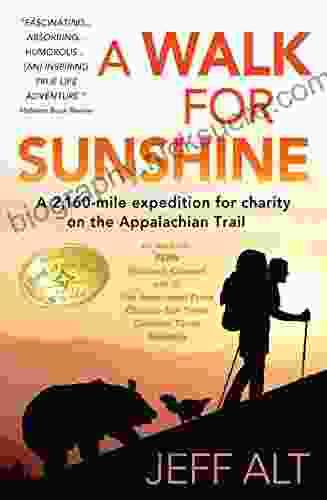
 Israel Bell
Israel BellEmbark on an Epic 160-Mile Expedition for Charity on the...
Prepare yourself for an...
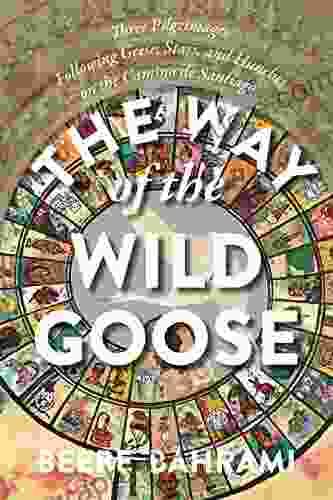
 Josh Carter
Josh CarterThe Way of the Wild Goose: A Journey of Embodied Wisdom...
The Way of the Wild Goose is an ancient...

 Allen Parker
Allen ParkerMastering the Art of Bean Fly Casting: A Comprehensive...
Fly fishing,...
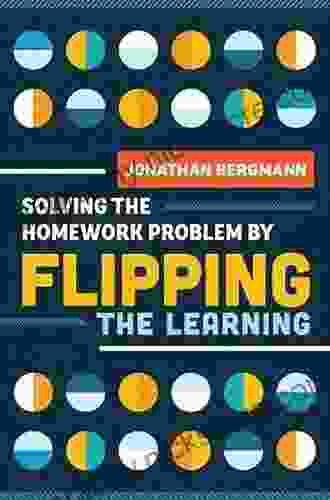
 Aaron Brooks
Aaron BrooksSolving the Homework Problem by Flipping the Learning
What is flipped...

 Fletcher Mitchell
Fletcher MitchellThe Jane Butel Library: A Renewed Source of Knowledge and...
The Jane Butel...
4.6 out of 5
| Language | : | English |
| File size | : | 118394 KB |
| Text-to-Speech | : | Enabled |
| Screen Reader | : | Supported |
| Enhanced typesetting | : | Enabled |
| X-Ray | : | Enabled |
| Word Wise | : | Enabled |
| Print length | : | 297 pages |


